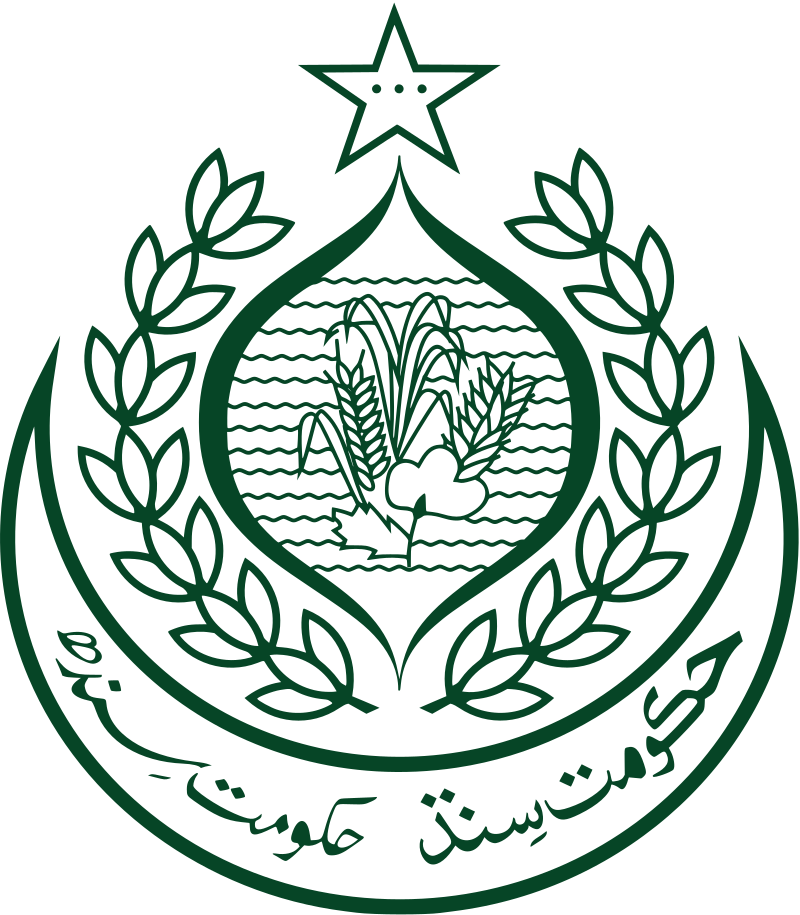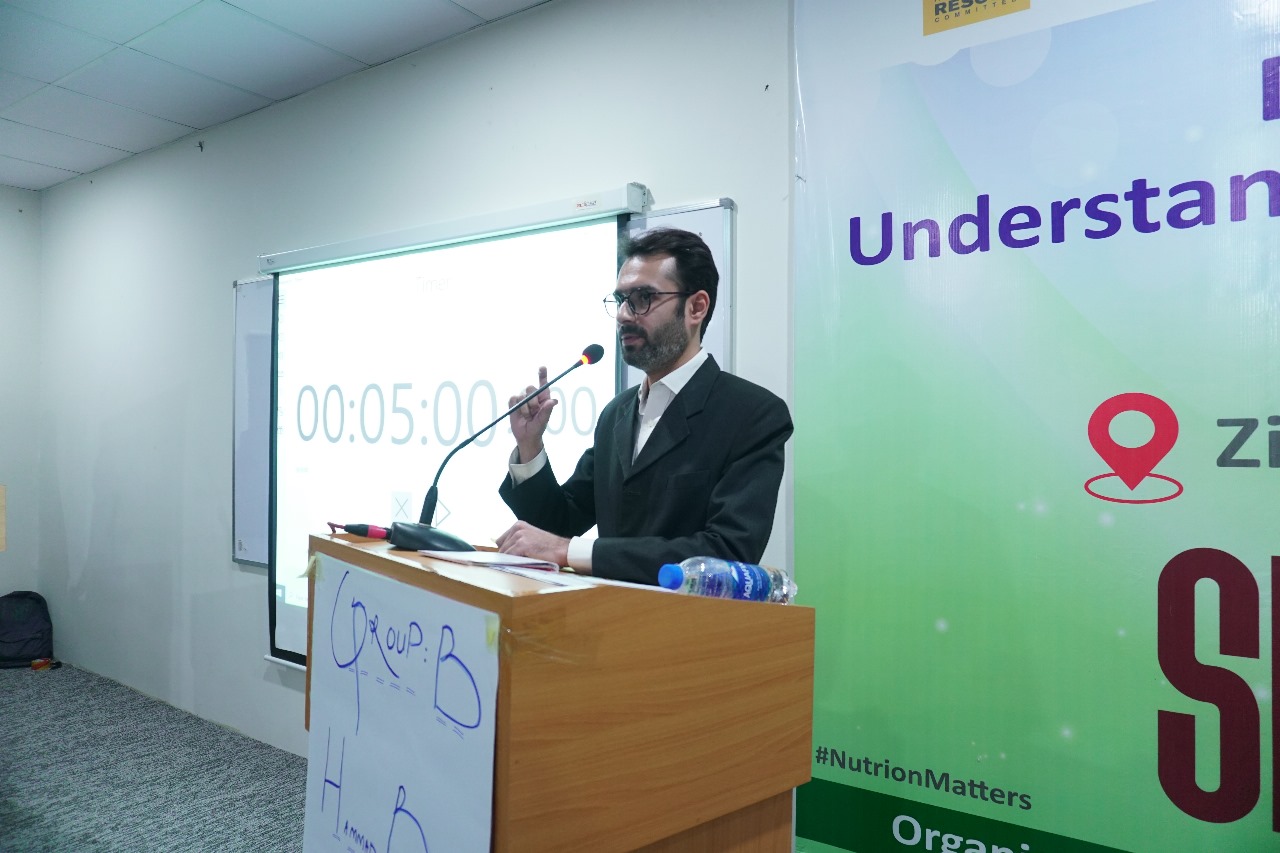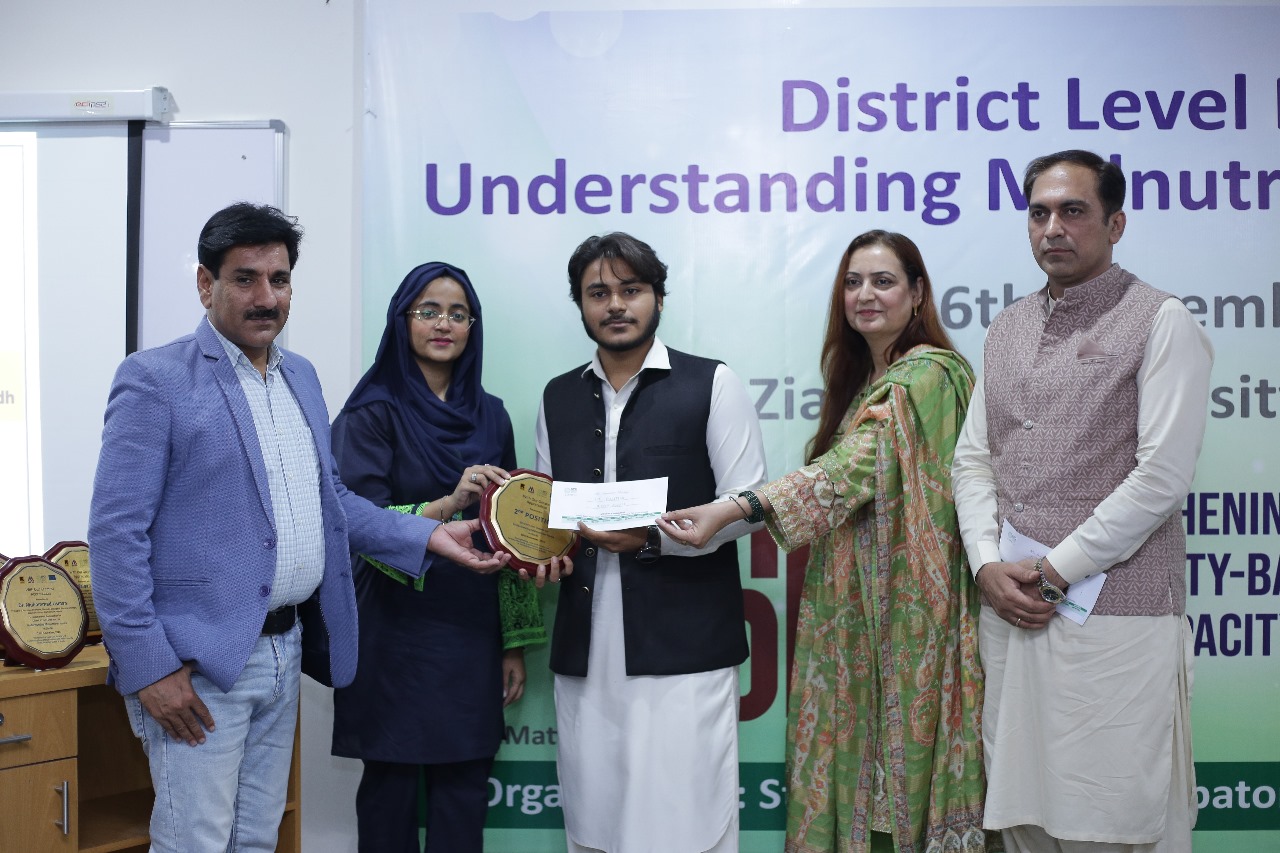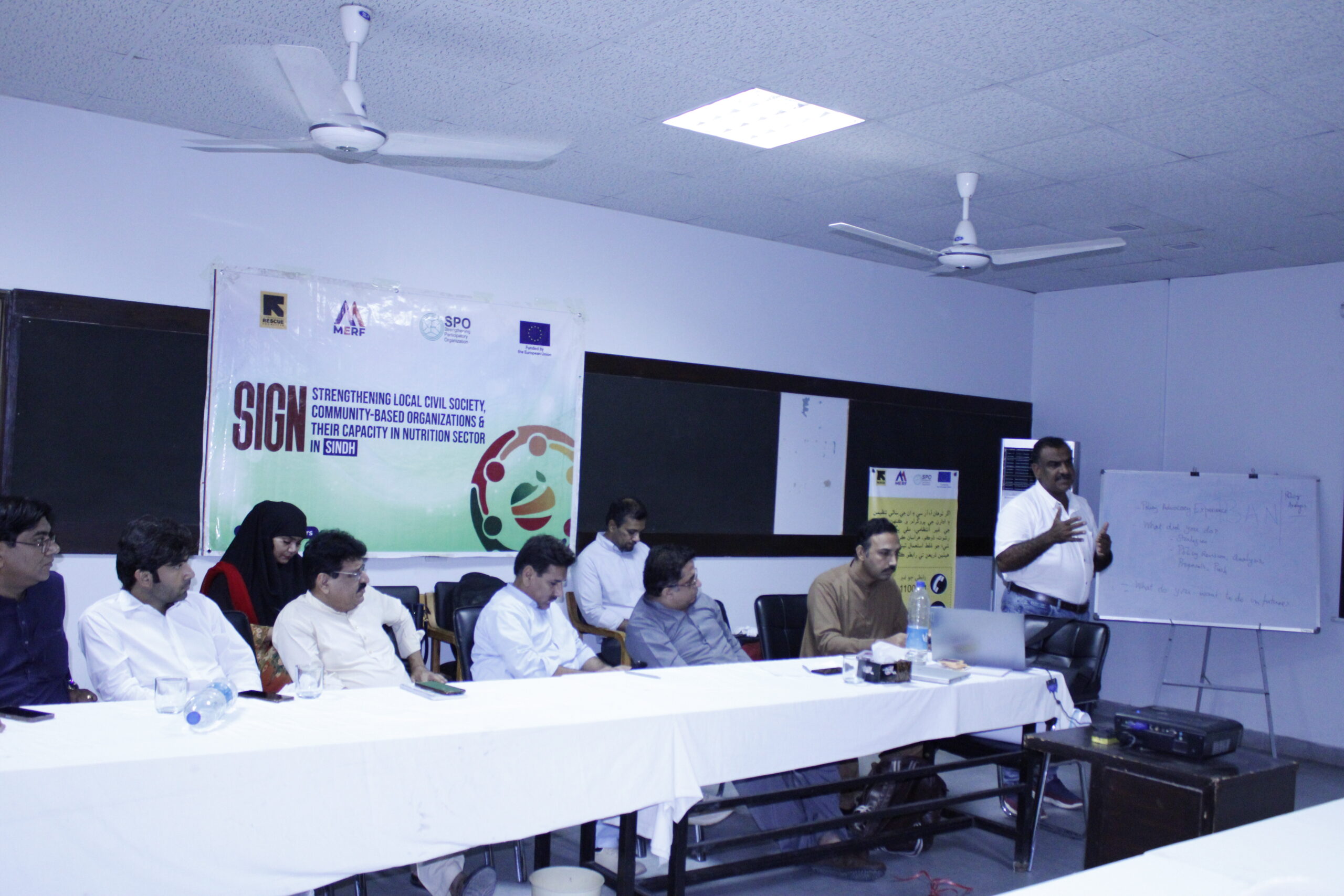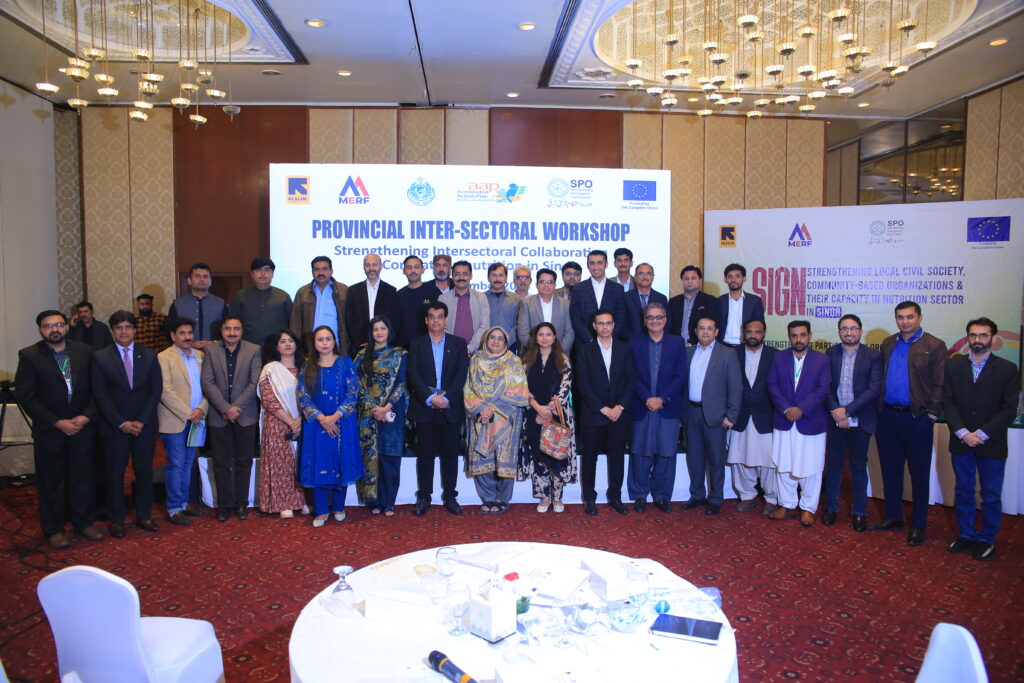
Provincial Intersectoral Workshop to Address Malnutrition in Sindh
Strengthening Participatory Organization (SPO), in collaboration with the International Rescue Committee (IRC), the Medical Emergency Resilience Foundation (MERF), and local Civil Society Organizations (CSOs), organized a Provincial Intersectoral Workshop in Karachi. This event aimed to address malnutrition in Sindh. It brought together representatives from government bodies, NGOs, civil society organizations, AAP-TF, and various stakeholders. The workshop sought to foster a multi-sectoral approach, enhance coordination, and develop actionable strategies to combat malnutrition effectively across the province.
The workshop featured a series of discussions, presentations, and interactive sessions designed to address gaps in the coordination mechanisms between various sectors and nutrition actors to strategize a unified response to malnutrition. Moderated by Mr. Irshad Ahmed, Project Manager at SPO, the event began with welcome remarks from Mr. Amjad Baloch, Regional Manager at SPO, who underscored the importance of intersectoral collaboration in achieving sustainable solutions.
Hisham Mazhar, Program Director of the Accelerated Action Plan (AAP) Task Force, delivered a keynote address emphasizing the need for data-driven strategies, community empowerment, and integrated efforts across health, agriculture, and population welfare sectors.
CSO representatives and other stakeholders recommended a Mobile Nutrition Program to provide critical services to remote areas. The discussions also addressed the agrarian nature of Sindh’s economy, the need for better budget allocation, and the importance of transparent funding mechanisms to streamline malnutrition interventions.
Stakeholders from SUN-CSA, PPHI, UNICEF, and other organizations shared insights on enhancing digital coordination platforms, decentralizing district-level nutrition models, and promoting education and skill development to improve nutritional outcomes.
The workshop concluded with a set of recommendations focused on strengthening partnerships, leveraging technology for better service delivery, and enhancing public awareness campaigns to foster behavioral change. Specific action points included regular reviews at OTP sites, the inclusion of local CSOs in provincial decision-making, and the activation of taluka committees to ensure community engagement. The event concluded with a group photo, symbolizing the collective commitment to combating malnutrition in Sindh.
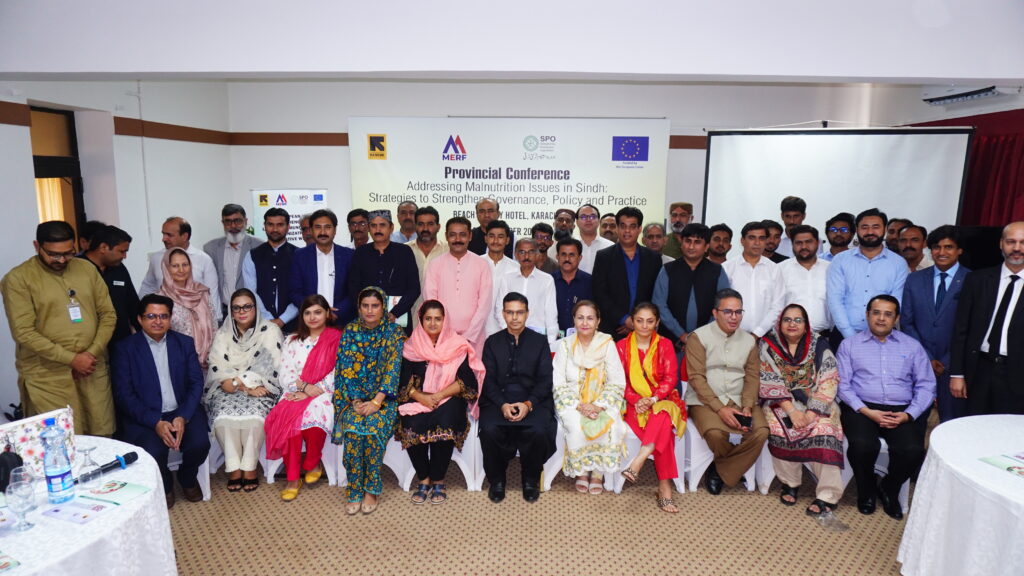
Intersectoral Nutrition Workshop: A workshop that involves multiple sectors such as health, agriculture, education, and social protection coming together to address malnutrition. This approach emphasizes collaboration across sectors to create holistic solutions to nutrition challenges.
Malnutrition Strategy Sindh: A strategic plan that outlines the key interventions, stakeholders, and actions required to combat malnutrition specifically in Sindh. It focuses on local challenges, such as food insecurity, poor health infrastructure, and inadequate nutrition education, to develop targeted solutions.
Multi-Sector Collaboration Nutrition: Refers to the coordinated efforts of various sectors (health, agriculture, education, etc.) working together to address nutrition challenges. A multi-sectoral approach recognizes that malnutrition is a complex issue that requires contributions from multiple areas of expertise and resources.
Health and Nutrition Governance: The structures and systems that ensure effective management of nutrition and health programs. This includes the development of policies, monitoring systems, and the oversight of programs to ensure they are properly implemented and that resources are used efficiently.
Community Health Initiatives Sindh: Programs and interventions designed to improve health and nutrition outcomes at the community level in Sindh. These initiatives often involve local organizations and stakeholders working directly with the population to address specific health and nutrition challenges.
Nutrition Policy Recommendations: Suggestions made by experts, stakeholders, and organizations regarding changes or improvements to existing nutrition policies. These recommendations aim to enhance the effectiveness of programs and interventions to address malnutrition and improve nutrition outcomes.
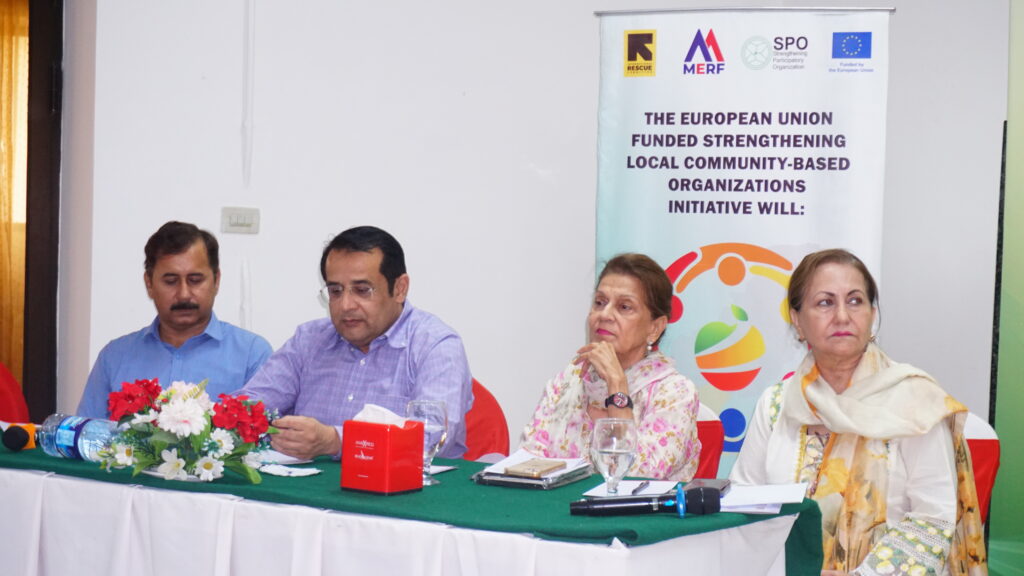
Digital Platforms in Health Coordination: The use of technology and digital tools to improve coordination and communication among various stakeholders in the health and nutrition sectors. These platforms can enhance data sharing, tracking of nutrition programs, and facilitate remote monitoring and support for interventions.
Public Awareness Nutrition Campaigns: Campaigns designed to educate the public about the importance of good nutrition and encourage healthy eating behaviors. These campaigns aim to raise awareness about malnutrition, its causes, and how communities can improve their nutrition through proper dietary practices.
CSO Involvement in Nutrition: The active participation of Civil Society Organizations (CSOs) in the design, implementation, and advocacy of nutrition programs. CSOs often play a key role in reaching marginalized communities and ensuring that nutrition interventions are effective and inclusive.
Sustainable Nutrition Strategies: Long-term, actionable plans aimed at improving nutrition in a way that can be maintained over time. These strategies focus on sustainable agricultural practices, local empowerment, and creating systems that can continue to address malnutrition beyond the immediate intervention period.

